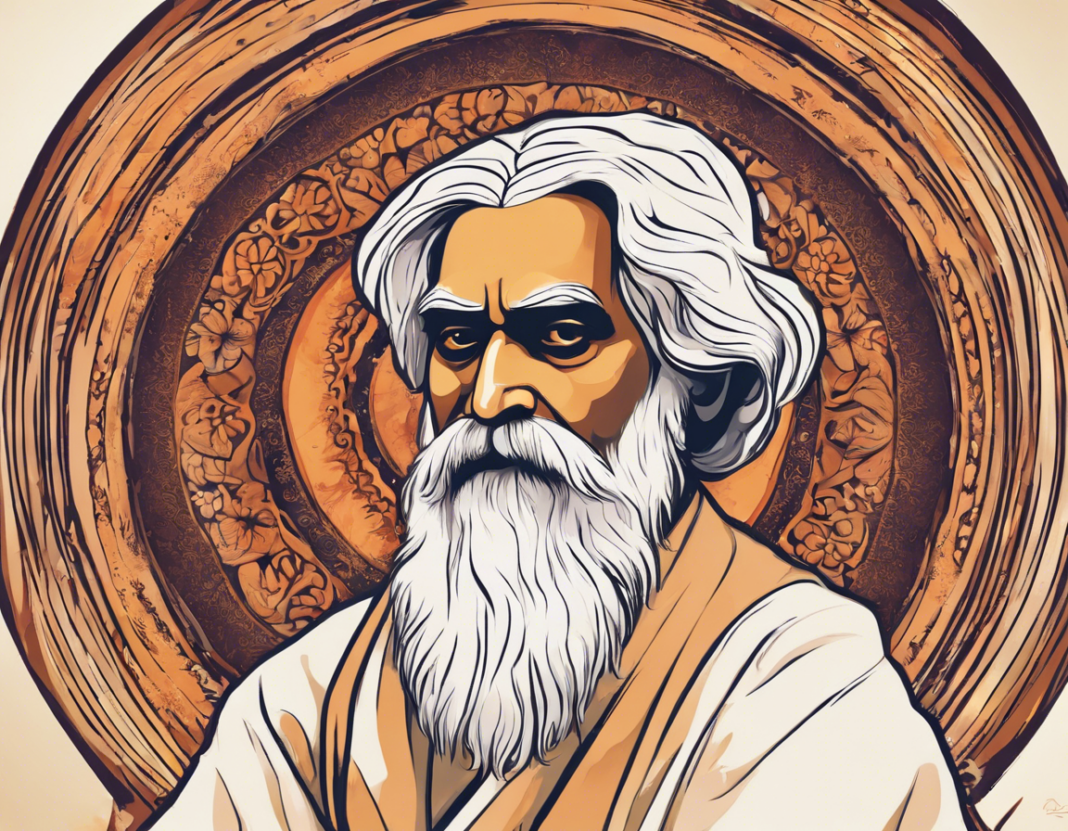Introduction: Rabindranath Tagore
Rabindranath Tagore, also known as Gurudev, was a versatile genius who made significant contributions to the fields of literature, music, art, and education. His impact on Indian culture and the world at large is immense, and his legacy continues to inspire generations. One of the best ways to commemorate his life and works is through celebrating his birth anniversary, which is known as Rabindra Jayanti. This day is observed with great reverence in India and other parts of the world, where admirers of Tagore come together to pay homage to his memory and celebrate his timeless creations.
Rabindra Jayanti: The Celebration
Rabindra Jayanti is celebrated on the 25th day of the Bengali month of Boishakh, which corresponds to May 7th according to the Gregorian calendar. The day holds special significance for Tagore enthusiasts, as it marks the birthday of this literary maestro. The celebrations typically include various cultural programs, performances of Tagore’s songs and dances, recitations of his poems, and discussions on his life and works. Schools, colleges, universities, and cultural organizations organize events to honor Tagore’s legacy and introduce the younger generation to his rich oeuvre.
Life and Works of Rabindranath Tagore
Rabindranath Tagore was born on May 7, 1861, in Kolkata, India. He was a poet, philosopher, musician, playwright, painter, and educator. Tagore’s literary works, which include poems, songs, short stories, novels, and essays, have left an indelible mark on the world of literature. He was awarded the Nobel Prize in Literature in 1913, becoming the first non-European to receive this prestigious honor.
Tagore’s Influence
Tagore’s influence extends beyond literature and into various other domains. His compositions have enriched Indian classical music, and his paintings have captivated art lovers around the globe. Tagore was also a visionary educationist who founded Visva-Bharati University in Santiniketan, which remains a hub of academic and cultural excellence.
Celebrating Rabindra Jayanti
On Rabindra Jayanti, people from all walks of life come together to celebrate Tagore’s life and works. Cultural programs, workshops, seminars, and exhibitions are organized to showcase the different facets of Tagore’s creativity. Choirs sing his songs, dance troupes perform his dances, and actors stage his plays. The objective is not just to remember Tagore but also to reignite interest in his profound thoughts and ideas.
Significance of Rabindra Jayanti
Rabindra Jayanti is more than just a birthday celebration. It is a reminder of the timeless relevance of Tagore’s works and the values he espoused. Tagore’s writings explore themes such as love, nature, spirituality, and humanity, offering insights that are as pertinent today as they were a century ago. Through Rabindra Jayanti, we reaffirm our commitment to upholding Tagore’s ideals and promoting his message of universal harmony and peace.
Legacy of Rabindranath Tagore
Rabindranath Tagore’s legacy continues to inspire creative minds around the world. His works have been translated into numerous languages and have touched the hearts of readers everywhere. Tagore’s humanitarian outlook, his deep connection with nature, and his advocacy for cultural diversity resonate with contemporary concerns. By celebrating Rabindra Jayanti, we ensure that Tagore’s legacy endures and his vision for a better world remains alive.
FAQs (Frequently Asked Questions)
1. Who was Rabindranath Tagore, and why is he famous?
Rabindranath Tagore was a renowned poet, writer, musician, artist, and educator from India. He is famous for his literary works, especially his poetry and songs, which have had a profound impact on Indian and world literature.
2. What is Rabindra Jayanti, and how is it celebrated?
Rabindra Jayanti is the birth anniversary of Rabindranath Tagore, celebrated on May 7th each year. It is commemorated with cultural programs, music and dance performances, recitations of Tagore’s works, and discussions on his life and legacy.
3. What are some of Rabindranath Tagore’s most famous works?
Some of Rabindranath Tagore’s most famous works include the poems in “Gitanjali,” his collection of songs known as “Rabindra Sangeet,” and the novel “Gora.” Tagore’s compositions in various genres continue to inspire readers and listeners worldwide.
4. How did Rabindranath Tagore contribute to Indian culture and society?
Rabindranath Tagore played a pivotal role in the cultural and social renaissance of India. His works promoted a universal outlook, transcending barriers of caste, creed, and nationality. Tagore’s educational philosophy emphasized holistic learning and creativity.
5. What is the relevance of Rabindranath Tagore’s ideas in the modern world?
Rabindranath Tagore’s ideas on nationalism, spirituality, humanism, and environmental conservation remain relevant in the contemporary world. His emphasis on empathy, diversity, and sustainable living resonates with current global challenges and aspirations for a more harmonious society.
Conclusion
Rabindra Jayanti is not just a day to celebrate the birth of a literary icon; it is a reminder of the enduring legacy of Rabindranath Tagore. Through his profound writings and artistic creations, Tagore continues to inspire and enlighten individuals across generations. By commemorating Rabindra Jayanti, we pay homage to Gurudev’s extraordinary contributions to literature, music, and education, ensuring that his message of universal brotherhood and creativity remains alive in our hearts and minds.






